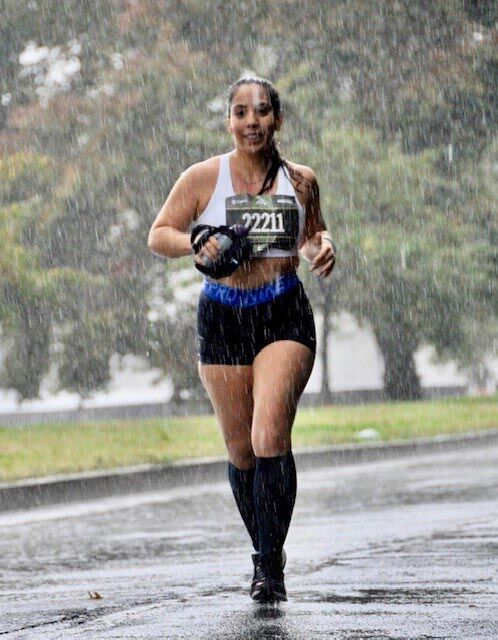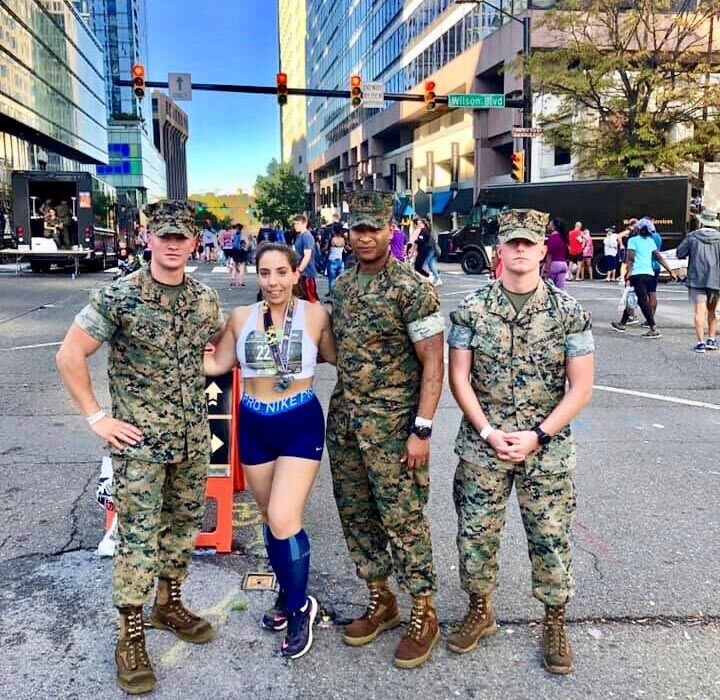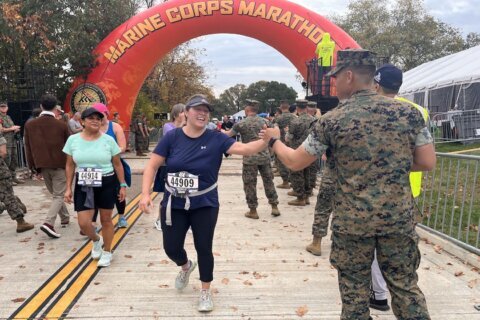The coronavirus has disrupted the Marine Corps Marathon this year, forcing the annual race to go virtual. But that’s not the only adjustment some of this year’s runners have had to make.
What happens when you get the virus in the middle of your training?
It’s something Melissa Sullivan, who lives in Dupont Circle, is finding out.
The 35-year-old is running this race for the third year in a row and had high hopes of setting a personal record this year. Then, in August, she tested positive for COVID-19. She still has no idea how she got it.
“It was an experience,” said Sullivan, who described her case as mild. Even so, “It was not pleasant,” she added. “It was probably the most pain that I’ve ever been in, in my entire life.”

She spent a night in the ER, calling it “one of those moments that really rock you,” and also admitted “it was scary going through that experience alone. Thankfully it was not as bad as it could have been.”
Sullivan had to miss a month of work and her marathon training was put on hold.
“I was not able to get out of bed for almost a month without immediately feeling dizzy,” said Sullivan. “Vertigo, nausea and it really caused me to take a step back.”
Even though she considers herself young and active, running on average 20 miles a week, “it really knocked me on my butt,” said Sullivan.
Now, even two months later, she’s still feeling the after-effects of the virus, on top of the difficulty caused by running with a mask.
She’s thankful she can even notice.
“It could have been so much worse,” she concedes. “I am grateful that it wasn’t.”
As someone who wore a mask and paid heed to precautions before she got sick, Sullivan hopes her tale will be a cautionary one to other millennials who feel they’re invincible, or at least not vulnerable to the virus.
“I took every precaution,” said Sullivan, who said she didn’t go out in public needlessly, and when she ran outside, she did so wearing a mask. “Somehow I contracted it.”
This Sunday, the original date for the marathon before it shifted to a virtual event, Sullivan plans to run her 26.2 miles. She said she hopes to stick to the normal course as much as she can, but she knows it won’t be the same.
“When you’re out there, yes you’re alone … it’s the Marines and the community members who really come out in droves and support you, and they’re high-fiving and they’re cheering and they’re handing out candy because it’s right around the corner from Halloween,” said Sullivan, “and it’s really beautiful. And so, unfortunately, that’s not going to be a part of the race experience this year.”
She added, “In those moments where you’re fatigued and your body starts to give out or your mind starts to psyche yourself out, it’s those community members and the Marines and everyone that’s there on the street cheering you on that really make you push through to the finish. So this will be a bit of a challenge. I’m going to have to dig deep emotionally and remember why I’m doing this.”

The first time Sullivan ran the marathon, she did so in memory of Sgt. Bill Cahir. She worked on his 2008 congressional campaign in Pennsylvania, and when he fell short in his election bid, he reenlisted in the Marines.
In 2009, he was killed while serving in Afghanistan. Sullivan used her first marathon run in 2018 to help raise money for the Tragedy Assistance Program for Survivors, also known as TAPS.
“It’s just an amazing race,” she said, and one she’s glad she’ll still be able to run this year. She said she looks forward to running again in the years ahead, too.
But this time, Sullivan also hopes to help encourage anyone else who suffered through the disease to fight through it too.
“Just keep moving forward,” she said, and don’t “let this be detrimental” to accomplishing your goals.








